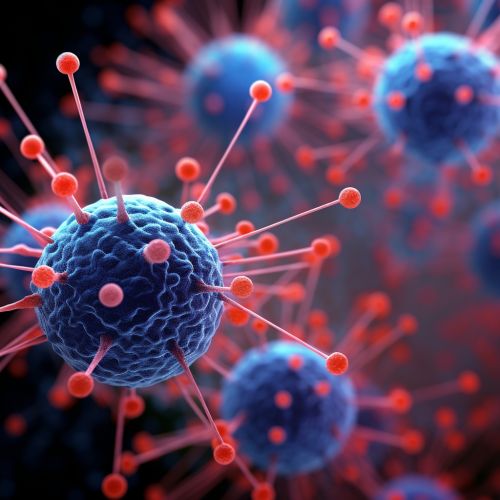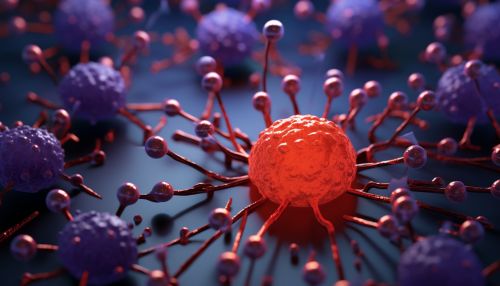Class switch recombination
Overview
Class switch recombination (CSR) is a biological process that occurs in activated B cells. This process is crucial for the immune system as it allows B cells to change the class (isotype) of antibody they produce, without altering the specificity for antigen.
Mechanism
The mechanism of class switch recombination involves several stages. Initially, the B cell produces IgM antibodies. Upon activation by an antigen and helper T cells, the B cell undergoes CSR, which allows it to switch from producing IgM to another class of antibody such as IgG, IgA, or IgE. This switch is achieved through a process of DNA recombination within the immunoglobulin heavy chain locus on chromosome 14.


Molecular Basis
The molecular basis of CSR involves the induction of double-strand breaks in the DNA at the switch (S) regions upstream of each constant (C) region gene in the immunoglobulin heavy chain locus. This is followed by the joining of different S regions, which results in the deletion of the intervening DNA and the switching of the antibody class. The enzyme activation-induced cytidine deaminase (AID) plays a critical role in initiating CSR by deaminating cytosine residues in the S regions, which leads to the generation of DNA double-strand breaks.
Regulation
The regulation of CSR is complex and involves both intrinsic and extrinsic factors. Intrinsic factors include the stage of B cell development and the specific signals received from the antigen and helper T cells. Extrinsic factors include the cytokine environment, which can influence the class of antibody produced. For example, the cytokine interleukin-4 (IL-4) promotes switching to IgG1 and IgE, while interferon-gamma (IFN-γ) promotes switching to IgG2a.
Clinical Significance
Defects in CSR can lead to immunodeficiency disorders, such as hyper-IgM syndrome, where patients produce excessive amounts of IgM but little or no other types of antibodies. This results in a decreased ability to fight off infections, particularly those caused by encapsulated bacteria. On the other hand, aberrant CSR can lead to the production of autoantibodies, contributing to autoimmune diseases such as systemic lupus erythematosus (SLE) and rheumatoid arthritis.
